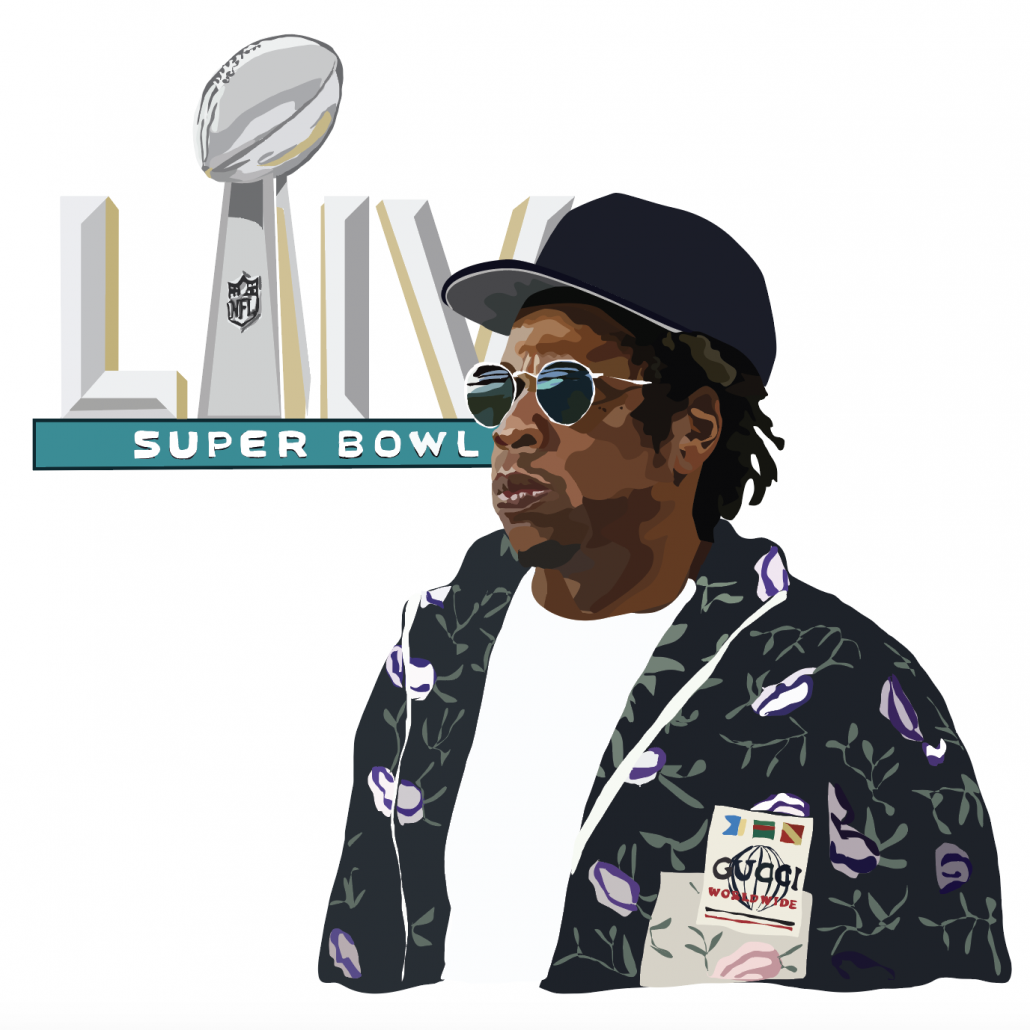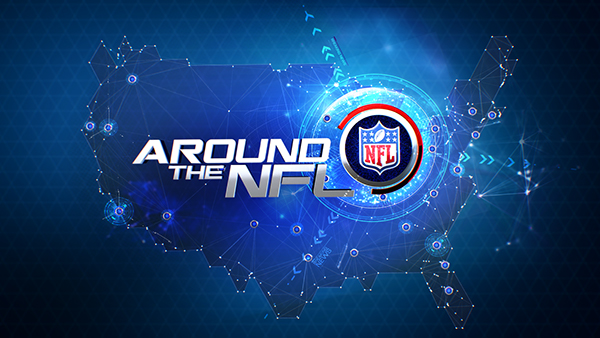Everything but the Song: Here Jay-Z goes again: Partnership with NFL is bad move

In the 1980s, Public Enemy told us to “Fight The Power” and N.W.A. said, “Fuck tha Police.” The two songs are among many protest anthems that have placed rap music at the forefront of social justice causes across the globe.
In 2011, Jay-Z told us, “I arrived on the day Fred Hampton died/ Uh, real n*ggas just multiply.” But did they?
The line attempts to draw a parallel between Jay and the assassinated Black Panther. Despite this couplet and the similarity it attempts to elicit, the rapper has continued to betray grassroots movements and people fighting for social equality in favor of shallow and capitalistic activism efforts.
For context, the NFL announced a partnership with Roc Nation in August. The entertainment company founded by Jay-Z will take charge of selecting artists for prominent NFL performances like the Super Bowl. The partnership also gave hip-hop’s first billionaire a stake in the NFL’s “Inspire Change” initiative relating to education and economic advancement, police and community relations, as well as criminal justice reform.
Yes, you read that right. The same league that blackballed former San Francisco 49ers quarterback Colin Kaepernick for kneeling during the national anthem to call attention to issues of racial inequality and police brutality is in business with the rapper who formerly stood in solidarity with Kaepernick by wearing his jersey on Saturday Night Live.
But this is old news. Ahead of Sunday’s Super Bowl, two ads produced by the NFL’s Jay-Z-backed “Inspire Change” initiative populated social media. One touched on the death of Botham Jean, who was killed in his apartment by trespassing Dallas police officer Amber Guyger. The other featured retired NFL player Anquan Boldin, whose cousin Corey Jones was murdered in an officer-involved shooting.
The ads are heartfelt and might even evoke tears. That is the extent of their effectiveness.
They’re cheap in the way that they use Black pain as a method to convince viewers, specifically white viewers, to care about the state-sanctioned murder of Black people. It’s been happening since around 1619, the advent of American slavery, and we still see it on the news today. If they don’t care by now, there is not much an NFL commercial can do.
Furthermore, they fail to mention the names of the officers involved. Their call for action is vague and they do not hold our criminal justice system accountable for these recurring murders.
Essentially, Jay-Z, the “Inspire Change” campaign and the NFL watered down Kaepernick’s message while excluding him from the league’s efforts to address social issues.
What instantly comes to mind is Jay’s cheeky comment: “I think we’ve moved past kneeling. I think it’s time to go into actionable items.” And in a recent interview with The New York Times, he says, “Someone needs to say, ‘What do we do now — because people are still dying?’” when explaining his choice to partner with the league in “support” of Kaepernick’s cause.
Commercials lacking calls for accountability are not actionable items. Using Roc Nation’s artists Meek Mill, Rapsody and Meghan Trainor as “Inspire Change” advocates is also not an actionable item that will end police brutality.
Yes, Jay-Z’s partnership with the league will bring the NFL to donate $100 million over the next 10 years on social justice outreach and causes. However, their charity means nothing when the man who initially inspired change, Colin Kaepernick, is still shut out and wasn’t consulted in the new initiative.
What is an actionable item then? One example is Know Your Rights Camp, the free campaign founded by Kaepernick, to advance the liberation and well-being of Black and brown communities.
An actionable item is spending your Super Bowl Sunday touring Black cultural institutions, handing out free meals and helping men get fitted for free suits; which is what Kaepernick did this weekend.

I think it’s safe to say Fred Hampton, socialist and former deputy chairman of the Black Panther Party, would scoff at the parallel Jay paints between the two. And although imperfect in their own right, members of Public Enemy and N.W.A. would view the rapper as siding with oppressive powers as opposed to fighting them.
Hampton once said, “We say you don’t fight racism with racism. We’re gonna fight racism with solidarity. We say you don’t fight capitalism with no Black capitalism; you fight capitalism with socialism.”
Jay-Z failed to stand in solidarity with Kaepernick. That could’ve been done by using his money, star power and artists to support and elevate the initiatives Kaepernick is already involved in.
And what makes his 2011 “Murder to Excellence” lyric even more hollow is the rapper’s evident pursuit of Black capitalism as a means to uplift Black and brown communities. In the same New York Times article, Roc Nation’s mission is described as “representing artists and athletes is to make money change hands with a purpose. Roc Nation sees this as a social justice function.”
And you guessed it, there is an “Inspire Change” apparel line as well as a “Songs of the Season” initiative where songs will be produced for NFL programming with proceeds going to fund the “Inspire Change” initiative.
Although Roc Nation’s efforts to economically inspire their artists and the “Inspire Change” funds approach activism differently, they don’t align with Hampton’s ideology and further characterize Jay’s social justice efforts as capitalist, not aligning with or directly serving the everyday people affected by systemic racism and injustice.
Jay-Z’s involvement with the NFL is not the extent of his social justice efforts. He’s fought relentlessly for rapper Meek Mill’s release and co-created the Reform Alliance to overhaul the probation system, but it is his most notable and most criticized humanitarian endeavor.
It’s silly to blatantly compare Jay-Z’s efforts with those of Hampton. Few of us, though we may try, will live and die dedicated to liberating our people. But as I’ve discussed before, in my first Everything But The Song iteration, “celebrities must be more conscious about their activism.” They can’t pimp the spirit of prominent activists and community leaders while turning their backs on modern-day people doing the same work.
“I am a revolutionary,” Hampton said. “And you’re going to have to keep on saying that. You’re going to have to say that I am a proletariat, I am the people.”
Jay-Z’s partnership with the NFL is not for the people.
Ellice Ellis is a senior writing about the music industry and social justice. Her column “Everything but the Song” runs every other Wednesday.

